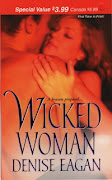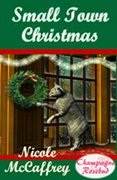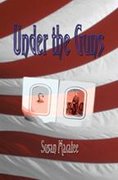Thought I'd continue with my theme on music. It's an important part of daily life, then and now. How often do you turn on the radio, pop in a CD, or hum your favorite theme song? OK, maybe not that last, but sometimes those things get trapped in your head and then you're stuck for the day.
In Women Musicians in Victorian Fiction, 1860-1900 by Phyllis Weliver (ISBN: 0754601269), she begins with For nineteenth-century society, music was a means by which women could display their gentility, education, their physical grace and express their 'selves'. Novelists were quick to employ this recognized way for women to project their personalities, and fictional scenes featuring women musicians served to reinforce or explore and challenge traditional views of the place of both women and music in society.
This was very true. Many women took piano lessons for years, and were the 'entertainment' so to speak at social gatherings. They played all the latest music, from Gilbert and Sullivan to pop-culture songs, to Beethoven and Mozart.
And they sang. Whether in dance halls or their own conservatory, many trained their voices. Mostly. I'm sure there will always be those "American Idol" wannabes who think they can sing but really can't.
Still, no matter how I search the internet, it's incredibly hard to find books, sites, or lists of music from this era. There are operas and plays listed, but not much on the every day level. Typing in a general time, I got something from Wikipedia, but as always with that site, take its info with a grain of salt.
http://en.wikipedia.org/wiki/1882_in_music
Anyone else have site or books on this topic?
Subscribe to:
Post Comments (Atom)









2 comments:
Trendy musical scores were published in the equivalent of today's 'fashion rags' because mail-order was booming. Inside catalogs such as Godey's Lady's Book were the up-to-the-minute compilations. Guitars were hip, so many offered arrangements of classics for guitars. Fashionable clothing catalogs included music because they catered to the elements necessary to create the latest in a gentile social setting. Women usually performed one or two songs or read prose after dinner and sometimes preceding dessert.
I use music extensively both in my trilogy continuing a work of classic lit and my historical set in 1866 Austria. In that novel my heroine in an autistic composer who 'sees' the world and emotions via music.
I understand your frustrations. The best thing I did was just become intimate with the composers of that era. Major composers usually do have some official website. You can contact various opera houses,often they have libraries that could provide some information.
A great book I found for understanding music of this time period in general was located in a used book store. I don't have it in front of me, but if you contact me (website is the best bet), I will make a note of emailing you the title and ISBN.
Post a Comment